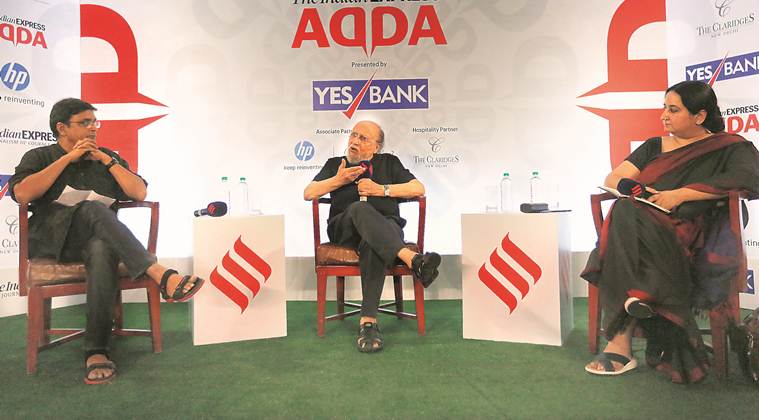
On Hindutva being a modern urban concept
It is absolutely a product of modernity, it is driven by the search for a proper nationality which the kinds of Savarkar believed India lacked. Here was one country that had no nationality, and the modern world runs on the concept of a nation-state,which requires nationality and nationalism. And because we don’t have a nationality and because Savarkar felt we were burdened by Hindus, multiplying like flies but demarshalised, effeminate and disorganised, we have to beat them into a modern nationality. That was his project. He picked it up from Europe and this search has never left us because there is the other view — somebody like (Rabindranath) Tagore who said that we do not have a nationality and we are none the worse for it. We have people, we have communities and these communities are not only confined to the social sphere, there are different kinds of communities. One person is associated with so many communities and that community becomes relevant according to the context. So, we do not have to have either a nationality or the ideology of nationalism. Old-fashioned patriotism is good enough. As it happens, in Europe too, the idea of nationalism is not more than 250 years old.
On why nationalism endures
Old-fashioned patriotism was good enough for even Europe at one time, and in India today, it is by blurring old-style patriotism and love for the country — which is natural and biological — and the idea of nationalism, that we have tried to strengthen nationalism. Nationalism by itself does not make that much of a sense as old-fashioned patriotism, which is biologically given in the sense that your earlier learning induces you to love your environment and place or location. Even cats and dogs are territorial, even birds are territorial, so it is not species-specific. And people died even then for the king and the country, they were patriotic. Every Indian, every South Asian, I should say, is patriotic by nature. You don’t have to teach them to be patriotic, but nationalism is an ideology and nationalism is not only defined by the love of the country territorially where you were born, nationalism is defined by specific enemies and specific allies. Nationalism is built on that; patriotism doesn’t have that kind of a responsibility, it doesn’t define your enemies or friends. So a different kind of relationship prevailed between countries, which even had wars like the Mahabharatic wars. Every day after the battle, the enemies met in the evening and talked of the older days when they lived together in peace; on all the days of the battle, this was a common fashion. It is a very long tradition, you will find similar stories in the West. Nationalism introduced a newer concept where enemies are more clearly defined, allies are clearly defined and all nationalists are supposed to agree with that.
On the Hindutva-Hinduism tussle
Ultimately, Hinduism will survive, it is too decentralised, too open to diversity. I’ve worked on nationalism, so I am telling you with some confidence. You read all the nationalist texts and you tell me if this nationalism is different from our nationalism, or that nationalism is distinct from other kind of nationalism. You cannot find it, all nationalisms are the same, the texts are the same, only the names, only the minor, trivial details differ. There is no difference between nationalism anywhere. Psychologically speaking, they are absolutely the same profile. That is the difference, while patriotism is different from country to country. Some are patriotic only about their village, some about the country, some about the region, some about the language, so how you define patriotism differs from country to country, situation to situation.
On whether we are moving towards Savarkar’s utopia
This is Savarkar’s state to some extent. Savarkar was a great admirer of western nation-states, he felt that our salvation
lay there. I must say that as a non-Hindu, I feel very obliged to him for keeping the